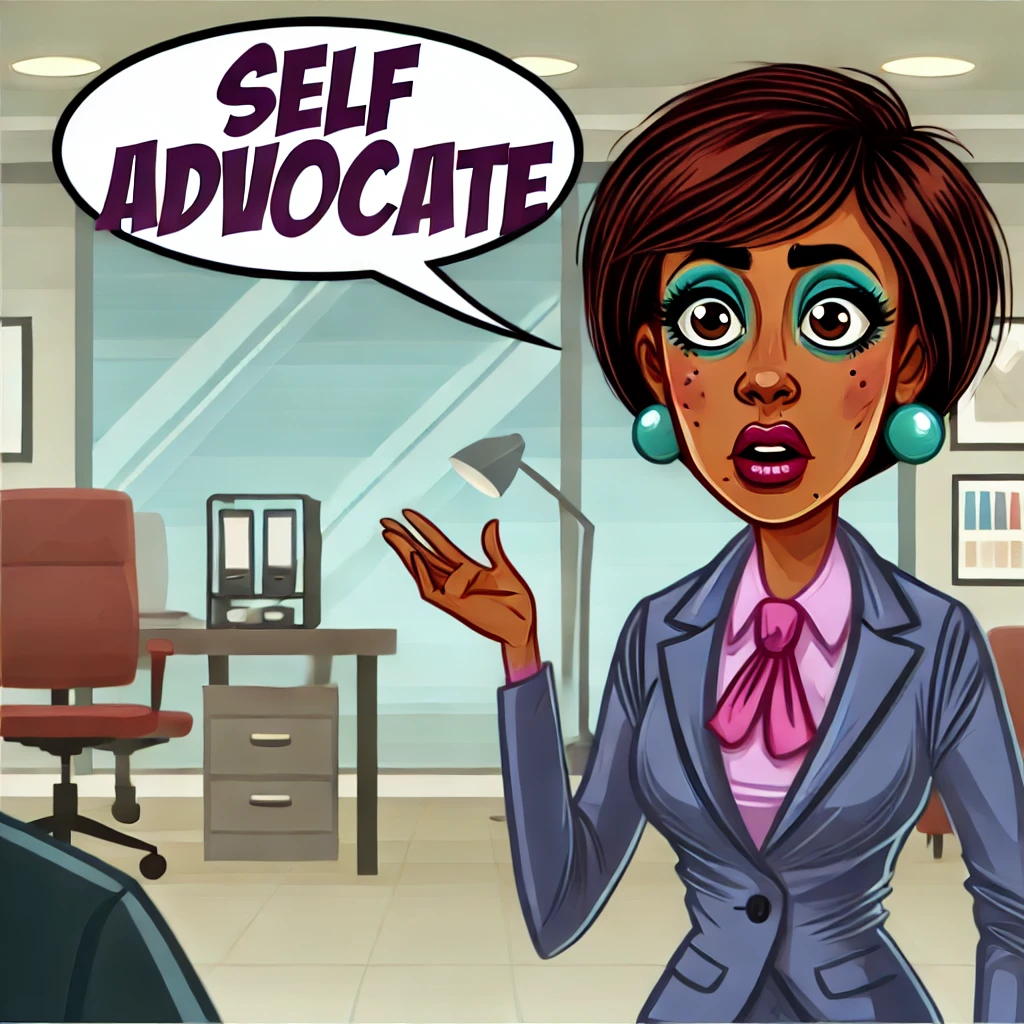Assertiveness for ADHD Women

Why Assertiveness is Essential for ADHD Women
Assertiveness helps ADHD women face unique challenges that impact their personal and professional lives. Developing assertiveness—confidently and respectfully expressing needs, feelings, and rights—is a crucial tool for navigating these challenges.
The Importance of Assertiveness for ADHD Women
Assertiveness is more than just a social skill for ADHD women—it’s a tool for survival. Here’s why:
- Acting in One’s Best Interest: Juggling multiple roles can lead to burnout. Assertiveness helps prioritize personal needs without guilt.
- Standing Up for Oneself: ADHD women are often misunderstood. Assertiveness enables them to advocate for themselves and demand respect.
- Exercising Rights Without Harm: Assertiveness allows ADHD women to express their rights—like saying no or seeking help—without harming themselves or others.
- Expressing Feelings Honestly: Emotional dysregulation is common in ADHD women. Assertiveness provides a healthy outlet for emotions, preventing bottling up or explosive reactions.
Why ADHD Women Struggle with Assertiveness
Despite its importance, assertiveness often eludes ADHD women due to:
- Lack of Skills: Some may not know how to be assertive.
- Belief They Don’t Have the Right: Societal conditioning teaches women, especially those with ADHD, to conform and be polite, making assertiveness challenging.
- Fear of Rejection or Judgment: A heightened fear of rejection or judgment can inhibit assertiveness, leading to withdrawal or submission.
Real-Life Scenarios
Assertiveness is vital for ADHD women in everyday situations:
- Saying No: Protect mental health by declining additional tasks without guilt.
- Requesting Accommodations: Confidently advocate for needs like flexible deadlines or a quiet workspace.
- Setting Boundaries: Maintain well-being by establishing and upholding boundaries in personal relationships.
- Seeking Clarity: Ask for clarification at work without embarrassment.
- Asking for Help: Directly and effectively request the support needed at home or work.
- Expressing Anger: Communicate anger in a healthy, constructive way.
The Science Behind Assertiveness and ADHD Women
Research shows that assertiveness benefits ADHD women by:
- Reducing Emotional Problems: Fewer emotional issues, lower anxiety, and better coping skills.
- Improving Stress Management: Better stress management and greater success in life.
- Enhancing Emotional Intelligence: Crucial for navigating complex emotions associated with ADHD.
- Increasing Success in Leadership Roles: Assertive women excel in leadership, where clear communication and pressure management are key.
Understanding Your Assertive Rights
Every ADHD woman has fundamental assertive rights, including:
- The Right to Dignity and Self-Respect: Be yourself without guilt or shame.
- The Right to Say No: Preserve energy and time by saying no without guilt.
- The Right to Express Negative Emotions: Express anger and frustration constructively.
- The Right to Ask for What You Need: Clear communication of needs is essential for well-being.
FAQs
- Why do ADHD women often struggle with assertiveness? ADHD women frequently engage in people-pleasing and masking as protective mechanisms. These behaviors are learned over time as a way to navigate a world that doesn’t always understand them. This makes it challenging to assert themselves because they may fear rejection or not being heard. Learning new skills like assertiveness can feel daunting, but it’s a gradual process that requires persistence and practice.
- How can ADHD women overcome the fear of being heard? Overcoming the fear of being heard involves recognizing that this fear often stems from past experiences where their needs or feelings were dismissed. It’s important to create safe environments where they can practice expressing themselves. This process takes time, patience, and continuous self-compassion. Remember, getting thoughts and feelings out in a way that is heard is a skill that improves with practice.
- What should ADHD women keep in mind when trying to assert themselves? It’s essential to acknowledge that learning to assert oneself is a journey. Mistakes and setbacks are part of the process, and that’s okay. Consistent practice and self-reflection can help build confidence. It’s also important to start small, setting manageable goals for assertiveness, and gradually building up to more challenging situations.
- How does people-pleasing affect assertiveness? People-pleasing often leads to putting others’ needs before your own, which can undermine assertiveness. Recognizing when this pattern occurs and gently challenging it by practicing small acts of assertiveness can gradually reduce the need to please others at the expense of your own well-being.
Conclusion
Assertiveness is a lifeline for ADHD women. By embracing their right to express themselves confidently and respectfully, they can build healthier relationships, achieve goals, and protect their mental and physical well-being. Encourage the ADHD women in your life to recognize the importance of assertiveness for a more empowered and authentic existence.
More pages on communication
- ADHD and Boundaries
Check out this post on Is is assertive or aggressive?
References
Alberti, R. E., & Emmons, M. L. (2008). Your perfect right: Assertiveness and equality in your life and relationships (9th ed.). Atascadero, CA: Impact Publishers.
Ecaterina, P. (2017). ASSERTIVENESS: THEORETICAL APPROACHES AND BENEFITS OF ASSERTIVE BEHAVIOUR [Abstract]. Journal of Innovation in Psychology, Education and Didactic, Vol. 21,(1), 83-96.
Jinsi, A. J. (2006). Self Assertiveness and Emotional Intelligence of Higher Secondary Students. Unpublished M. Ed dissertation. Farook Training College, University of Calicut.
Gay, M. L., Hollandsworth, J. G., & Galassi, J. P. (1975). An assertiveness inventory for adults.
Journal of Counseling Psychology, 22(4), 340–344.
https://doi.org/10.1037/h0076706
Kraft, W. A., Litwin, W. J., & Barber, S. E. (1986). Religious orientation and assertiveness: Relationship to death anxiety. The Journal of Social Psychology, 127, 93-95.
Peneva, I., & Mavrodiev, S. (2013). A historical approach to assertiveness. Psychological Thought, 6(1), 3-26. doi:10.5964/psyct.v6i1.14
Sheinov, V. P. (2014). Razrabotka testa assertivnosti, udovletvoriaiushchego trebovaniiam nadezhnos6 ti i validnosti [Development of the test of assertiveness, satisfying the requirements of reliability and validity]. Voprosy
psikhologii [Questions of psychology], no. 2, 107-116.
Stein, S. J, & Book, H. E. (2011). The EQ Edge: Emotional Intelligence and Your Success, 3rd Edition. Willey.
Smith, M. J. (1985). When I say no, I feel guilty. New York: Bantam Books.
Stein, S. J, & Book, H. E. (2011). The EQ Edge: Emotional Intelligence and Your Success, 3rd Edition. Willey.
Wolpe, J. (1958). Psychotherapy by Reproach Inhibition. Stanford University Press: Stanford, California.
Medical information obtained from this website is not intended as a substitute for professional care. If you have or suspect you have a problem, you should consult a healthcare provider.





